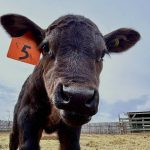Bunge-Viterra deal alarms global think tank
A Russia-based think-tank says the Bunge-Viterra merger in Canada will cost other grain exporting countries at least $2.5 billion annually. It called for an inquiry into the global grain trade and “cartel-like activity” of some traders.
The BRICS Competition Law and Policy Centre looked at four elements of economic power held by major traders. These included financial interconnectedness between commodity trading and financial capital,
links between corporate groups operated by traders, digital platform ownership, and extensive vertical integration. The centre said that together, these elements create control over the entire value chain.
The BRICS authors used a Canadian study that found the export basis at the Port of Vancouver would rise about 15 per cent because of the merger. They said that applying that to 20 per cent of the volume would cost Russia and Brazil an extra $2.5 billion each year.
University of Saskatchewan agricultural economist Richard Gray, who was among the authors of the Canadian study, said this is “plausible.” His study found Canadian farmers could lose about $770 million per year because of the merger.
International trade minister expects expanded trade with Indonesia
Canada hopes to establish duty-free access for most of its exports to Indonesia over the next eight to 12 months. That’s according to International Trade Minister Maninder Sidhu after he signed a trade agreement with that country.
Canada and Indonesia finished negotiations of the Canada-Indonesia Comprehensive Economic Partnership Agreement in December.
Sidhu said he saw many opportunities in agriculture, energy, telecom, defense and aerospace.
Trade between the two countries could double within six years, he added.
Indonesia is a major market for Canadian wheat, and also imports Canadian oilseeds, wood pulp, fertilizer and machinery.
Also on the trade front, Prime Minister Mark Carney struck a hopeful note after talks with Chinese Premier Li Quang on the sidelines of this week’s U.N. assembly. Carney called the discussion constructive and said he expected the dialogue to deepen over time.
Li told Carney that he hoped Canada would establish a “correct” understanding of China.
and that the two countries would lay a solid political foundation for bilateral relations and cooperation.
That’s according to China’s official Xinhua news agency.
U.S. farm group’s proposed legislation mimics Canadian dairy system
An American farm group has proposed legislation that would mirror aspects of Canadian supply-managed dairy.
The National Family Farm Coalition says consolidation in the American dairy sector is leading to negative consequences for consumers, farmers and the environment.
Small family farms are consolidating into large, corporate farms. Big Wisconsin dairies struggle to get rid of all their manure, which has led to water quality issues. Corn and soybeans are heavily cropped in the state to feed cattle, but these are subsidized by taxpayers.
The Milk from Family Dairies Act would see measures to break up dairy market concentration,
and the production base controlled by a farmer-run board. It would also ensure farmers are paid a fair price, impose better dairy import and export controls, and strengthen regional dairy infrastructure.
The National Family Farm Coalition has struggled to find a congress member to sponsor the bill,
and said it faces opposition from the dairy industry.








